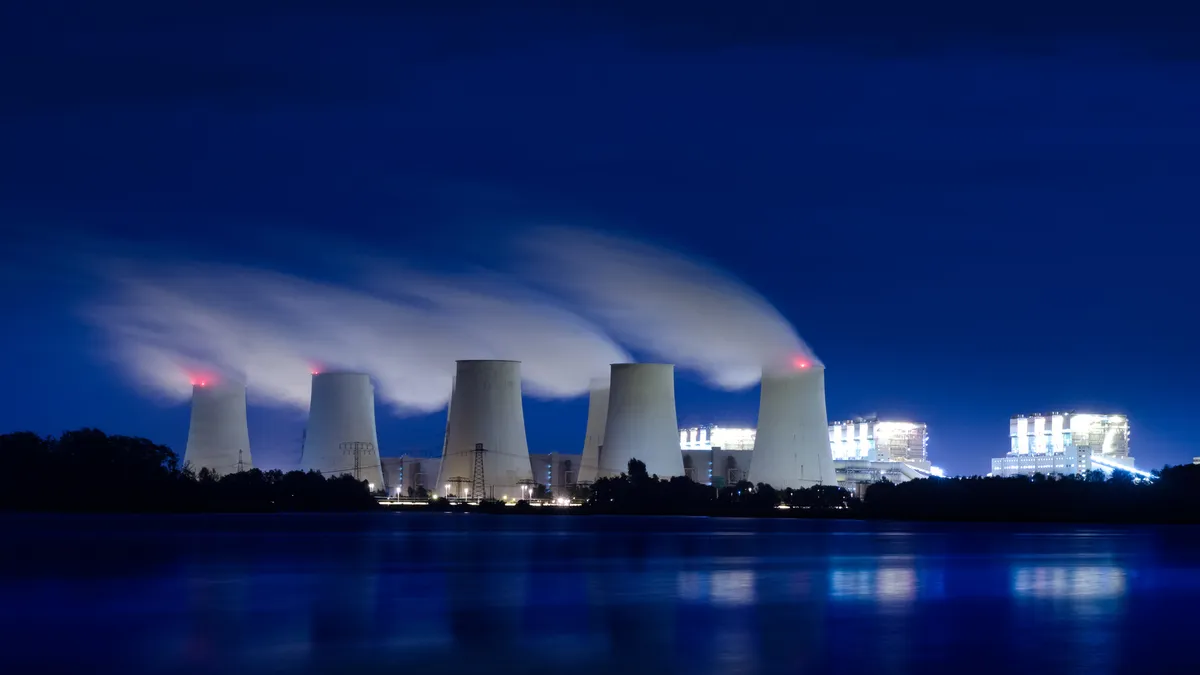Dive Brief:
- More than a third of the nation's nuclear generating capacity will be offline this spring for refueling, according to analysis from industry website NukeWorker.com.
- Bloomberg spoke with the company's President and CEO Michael Rennhack, who said the 34 units expected to go offline would be the most for this time of year since 2000. Nuclear units typically refuel in the spring, when demand is lower.
- The outages are expected to give a boost to natural gas prices, and could send power prices up as well— particularly in regions where gas is constrained and significant nuclear energy is typically used.
Dive Insight:
A confluence of nuclear outages expected after this winter has the potential to send natural gas prices higher, and could raise power bills as well.
Outages are common in the spring, but nukes make up about 20% of the United States generation and a third of that capacity is expected offline. Among the expected refuelings is Unit 1 at Exelon's Nine Mile Point facility in New York. Last June, Exelon indicated it was considering closing that unit unless it received assistance from the state.
But New York, recognizing the need for its carbon-free generation, put in place a Clean Energy Standard to help the state's nuclear fleet. It is now tied up in court, but the credits approved by the state show how important the generators are to New York and the region.
New York's Fitzpatrick, Ginna and Nine Mile nuclear plants, all owned by Exelon, are expected to produce 27.6 million MWh of carbon-free generation per year. The state has also set a goal of cutting greenhouse gas emissions 40% from 1990 levels by 2030, and 80% by 2050.
But natural gas sets the margin price of energy in many areas, but in New England and parts of the Mid-Atlantic commodity and power prices move almost in lock-step. The potential for more gas demand could push prices higher.
Gas prices are widely expected to rise this year, making more room for coal as well. According to the U.S. Energy Information Administration, coal will generate 31% of the country's power this year, ticking up from about 30% in 2016. Gas will decline from 34% in 2016 to about 33%. EIA expects gas prices to rise from $2.50/million British thermal units in 2016, to $3.12/MMBtu this year.















